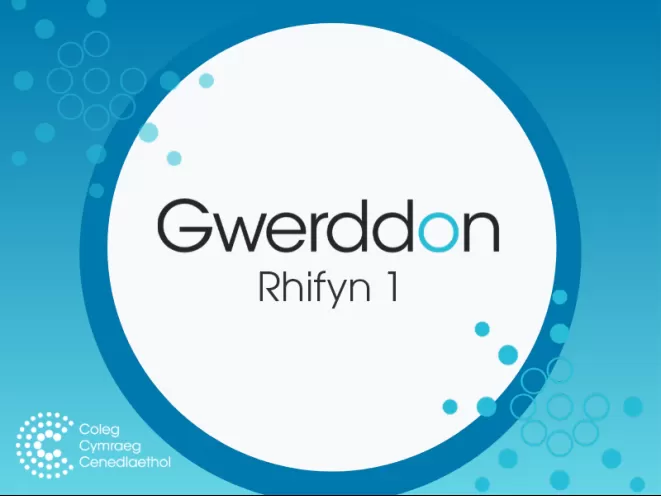This paper offers a brief examination of the approach taken by the Welsh Language Board, as the principal language policy and planning body in Wales, to aspects of prestige planning and the Welsh language. It describes how devolution, and the recent, first ever, national review by the Welsh Assembly Government of Welsh language policy, provide the immediate context for the work of the Welsh Language Board. The key policy document resulting from that review, Iaith Pawb, is critically analysed and the relationship to it of prestige planning is identified. The Welsh Language Board’s practice of prestige planning is discussed in relation to the discourses of neo-liberalism and post-colonialism in a way that highlights the Board’s focus on consumers rather than citizens.
(Citizenship, the Welsh Language Board, and marketing the Welsh language)
Speaking the language of the home when the home is unaffordable
Over the last quarter century, housing has become increasingly unaffordable for thevast majority of people. This article seeks to address what has caused this situation, and what its effects are on the individual and on the community. It will also consider how unaffordable housing and the lack of housing opportunities for local people affects the Welsh language. The article will then consider the mechanisms that have been adopted both by the National Assembly for Wales and by the Whitehall Government to resolve the inter-related problems of unaffordable housing and local people being unable to afford to buy houses in their local area, and the extent to which these solutions provide answers to this dilemma that are sustainable in the long term. To conclude, suggestions of how to improve the existing frameworks will be proposed, along with more radical approaches to ensure that housing does not become a luxury commodity.
The Welsh language as a model for breaking the lack of use cycle in the context of minority languages
Using the contemporary status of the Welsh language in post-16 education and the administration of justice as models, the aim of this article is to identify a paradigm of minority language non-use that arises despite the formal provision of bilingual services and resources. Thereafter, weaknesses in this paradigm will be explored in order to evaluate how existing legislation and policies may be employed in a manner that facilitates a change in linguistic behaviour from that which normalises minority language non-use to one that maximises the opportunities for meaningful linguistic choices.
Bilingual education in the twenty-first century: A review of the international context
With the publication of its Welsh-medium Education Strategy in April 2010, the Welsh Assembly Government recognised the leading role of Welsh-medium education in the field of bilingual education throughout Europe and the world during the last fifty years. As the system further develops with increasing numbers of pupils choosing bilingual education in Wales, it is emphasised that it is important to be aware of the patterns and models available in other bilingual communities that successfully integrate bilingualism or multilingualism into their provision so that we can understand their relevance to our particular situation in Wales. This article gives an overview of the most recent developments in bilingual education in an international context and considers the important issues that emerge as this type of education continues to develop to cater for the needs of pupils in bilingual and multilingual communities throughout the world in the twenty-first century.
The Welsh Government’s plan to introduce a system of presumed consent for organ donation
The Welsh Assembly Government will introduce a system of presumed consent for organ donation in 2015. According to this scheme, if adults in Wales have not expressed their opposition to the use of their organs after their death, and in the absence of opposition from their families, permission to use their organs will be presumed by the authorities. According to the present system, the onus is on the individual to register as a donor, but if this new scheme is implemented, it will be the responsibility of the individual to deregister as a donor. This essay is a legal and ethical evaluation of the proposed changes.
'Towards the light': Parents’ reasons for choosing Welsh education for their children in Cwm Rhymni
Welsh-medium education has long been seen as an effective language planning tool in order to transmit the Welsh language in Wales. According to the 2001 Census, there has been a substantial increase in the numbers of Welsh speakers 3–15 years old, especially in south–east Wales, since the 1991 Census. The aim of this paper is to elaborate upon this quantitative data by providing qualitative data with regard to the main reasons and incentives for parents to choose this educational option for their children. The study location is Cwm Rhymni, Caerffili county. A combination of quantitative questionnaires and qualitative in-depth interviews were administered amongst parents from the meithrin, primary and secondary school sectors in Cwm Rhymni. The reasons why parents choose this educational system for their children were cultural, educational, economic and personal. However, it is pertinent to note from the outset, that the parents chose Welsh-medium education for their children in this area for mainly cultural reasons, rather than economic reasons which featured heavily in past studies such as research by Williams et al. (1978) on bilingual education in the Rhondda. This study is the first in a larger corpus of work and one that hopes to address the existing lacunae in the Sociology of Language in Wales, especially as there is a lack of Sociology of Language studies through the medium of Welsh in Wales.
Cyflwyniad yr Athro Gareth Williams ar ysgrifau sydd wedi dylanwadu arno
Mae'r Athro Gareth Williams yn hanesydd disglair, yn arbenigo ar ddiwylliant poblogaidd yng Nghymru yn y 19eg a'r 20fed ganrif. Mae bellach yn Athro Emeritws Prifysgol De Cymru. Yma, mewn darlith a draddododd ym Mhrifysgol Abertawe ar 17 Ebrill 2013, mae'n trafod pa ysgrifau sydd wedi dylanwadu ar ei yrfa.
'The Light shall Return': Music and dementia in Wales
This article focuses on the effects of music on sufferers of dementia as a means of communicating through familiar songs within a Welsh context. The fieldwork is based on the author’s experience singing to the accompaniment of the Celtic harp at an assessment unit for dementia and at resident homes for the elderly on the Llŷn Peninsula during the Summer of 2010 and presents insights gained from observing patients recalling familiar songs when conversation was difficult. On this basis, the article examines the way in which music can assist patients who suffer from this condition, describing and analysing the results.
Choice and the citizen? Health decisions and their implications for developing a Welsh citizenship
Health services offer a privileged space to define the proper relationship of the citizen and the modern state. Individuals have been expected to make choices in health care in Wales and England since the 1980s. A new vaccine against some types of cervical cancer was recently introduced for girls. Parents are expected to consent on behalf of their daughters. This paper reports the results of the largest qualitative study in this area world-wide. It depicts attitudes to health care choice and discusses parents’ experiences of consenting or not. Parents’ decisional strategies in the face of uncertainty are analysed. Consequences of the study relate to the individuals’ relationship with the Welsh National Health Service (NHS) and to developing a concept of Welsh citizenship.
(D.J. and I)
‘D.J. a fi’ draws on aspects of the work of Welsh author D.J. Williams and examines their potential to inspire the creation and inform the analysis of contemporary site-specific performance. Williams’s memoir, The Old Farmhouse, provides unique insights into the landscape of childhood, the located nature of memory, the dramaturgy of storytelling and the role of the teller. The author employs these insights to develop and suggest a number of practical and theoretical approaches to the use of biography, family history, domestic architecture and local knowledge in devised performance. Referring extensively to his own work, ‘Bubbling Tom’ (2000), a peripatetic solo performance staged in the village of his own upbringing in rural Lincolnshire: a guided tour of the places he knew at the age of seven – he discusses the importance of Williams’s work in inspiring dramatic forms that seek to reveal the grain of experience by addressing the intimate and familiar, the details of everyday life and its fabric.
‘Beth yw’r ots gennyf i am Gymru?’: The out-migration and aspirations of young people from the Welsh heartland...
This article considers the out-migration of young people from the Welsh-speaking heartlands in terms of their aspirations and hopes for the future. The original doctoral research (2014), is based on Hywel Jones’ (2010) work, which argues that young people born outside of Wales are four times more likely to migrate from Wales than young people born here. The research attempts to establish the main factors that affect rates of out-migration among young people born outside of Wales and those born into non-native families. The article concludes that the main drivers of rates of out-migration among this group are factors such as sense of belonging and the extent of community integration, rather than solely economic factors. In particular, it examines how culture, nationality, and considerations pertaining to the Welsh language have an impact on this trend, which has important implications in terms of the linguistic retention of the ‘traditional’ Welsh speaking areas.
Implications of changes in the age profiles of Welsh speakers
Aitchison and Carter’s analyses of the Census over the last decades have succeeded in making the main trends concerning the spatial distribution of Welsh known to everyone with an interest in the future of the language. Even so, some aspects remain unexamined. This paper is an attempt to give a different view of the trends by presenting a number of new analyses. In the first part, language production between 1991 and 2001 that is the effect of the education system, is examined. It is shown that the introduction of the National Curriculum in Gwent led to the biggest changes. In the second part, the geographical distribution of Welsh-speakers is looked at, especially those areas where more than 70% could speak Welsh. Some indices are introduced in order to quantify the situation and to explain the significance of those areas. Lastly, the implications of spatial distribution (or social network) to the use of Welsh is discussed by consideration of a little probability theory.










